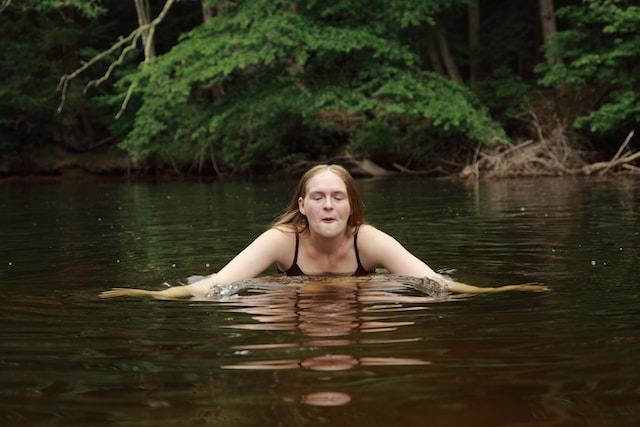Taking a dip in ice-cold water may seem intimidating, but it offers a range of health and wellness benefits. Cold water immersion, also called cold exposure therapy, has been practiced for centuries as a way to enhance physical performance, improve mental clarity and promote overall well-being. This comprehensive guide will walk you through the science behind cold dives and provide tips on how to safely incorporate them into your routine.
The physiology of cold water immersion
When you immerse your body in cold water, your physiology comes into action to protect you and maintain homeostasis. This is what happens:
Narrowing of blood vessels – As soon as cold water touches your skin, your blood vessels constrict to prevent body heat from escaping. This leads to an increase in blood pressure.
Release of stress hormones – The cold releases your autonomic nervous system norepinephrine, cortisol and beta-endorphins. This increase in stress hormones activates your fight-or-flight response.
Increase in metabolism – Your body starts to burn more calories to produce heat and keep your core temperature high. This leads to an increase in metabolism that can last for hours after you emerge from the cold plunge.
Reduction of inflammation – The cold causes your lymphatic system to drain metabolic waste and flush toxins from your tissues. This helps reduce inflammation in your muscles and joints.
The proven benefits of cold water therapy
Regular cold water immersion offers an impressive list of science-backed benefits:
Improved circulation – The cold stimulates angiogenesis, which is the growth of new blood vessels. This improves circulation and nutrient delivery throughout the body.
Sleep better – Cold plunges have been shown to improve sleep quality, help you fall asleep faster and improve slow deep sleep. This is due to changes in your nervous system and hormone levels.
Reduced stress and anxiety – Exposure to cold leads to a release of dopamine and endorphins, which can improve your mood and reduce feelings of stress. It also activates your parasympathetic nervous system and promotes relaxation.
More willpower and focus – Adapting to the cold requires mental strength. If you take regular cold dips, you will notice improvements in your grit, concentration and determination.
Improved immunity – Short-term cold stress has been shown to activate your immune system and increase white blood cell production. This prepares your body to fight infectious pathogens.
Recovery from injuries – The cold stimulates vasoconstriction and vasodilation, which removes lactic acid from tired muscles. This promotes recovery from training and injuries.
Weight loss – Exposure to cold causes a large calorie burn as your metabolism increases. It also helps convert white fat into beneficial brown fat – the type that generates heat by burning calories.
How to safely integrate cold divers
If you’re ready to take the icy plunge, below are some tips to make cold water immersion safe, practical and useful:
- Start gradually – especially if you have medical conditions. Start with short immersions of 30-60 seconds.
- Wear shoes when you go outside to avoid cutting your feet on sharp rocks or ice. Neoprene socks and water shoes work well.
- Consider wearing a beanie or neoprene cap to reduce the initial shock and keep your head warm.
- Hyperventilate beforehand by breathing deeply from the abdomen 20-30 times. This provides your body with oxygen in advance.
- Make sure you have a bathrobe, towel and hot drink on hand for when you get out. Warm up gradually.
- Take slow, deep breaths during your cold plunge to calm your nervous system.
- After your initial adjustment you can work up to longer dives of 2-5 minutes. But always listen to your body.
- Find a buddy! It is safer and more fun to take a cold dip with others. You can motivate each other.
- Keep the water nice and cold – between 50-60°F is ideal. Any colder temperatures may be excessive. Add ice if necessary.
With the right precautions, cold water immersion can be an invigorating addition to your wellness routine. Reset your physiology, develop mental strength and unlock the unique benefits of cold diving. Take it easy, stay safe and have fun challenging yourself!





